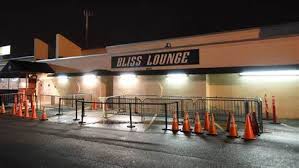Bliss Lounge: Clifton's Pulsing Heartbeat
In the dim glow of neon lights and the thump of bass-heavy beats, Bliss Lounge once stood as a beacon of unbridled energy in suburban New Jersey. Nestled at 955 Allwood Road in Clifton, this sprawling nightclub was more than just a venue—it was a cultural crossroads where diverse crowds converged for nights of music, dance, and fleeting escapism. From its grand reopening in late 2006 to its abrupt shuttering in June 2017, Bliss encapsulated the highs and lows of American nightlife: euphoric highs of sold-out shows and the gritty underbelly of escalating chaos. Today, the building sits vacant, a silent relic of Clifton's wilder days, its story a cautionary tale of ambition clashing with community limits.
Bliss didn't emerge in a vacuum. Its roots trace back to the late 1990s and early 2000s, when the space housed Joey's Nightclub, a staple of the local scene known for its high-energy parties and capacity crowds. Joey's, under similar management, drew partygoers from across the Tri-State area with its mix of hip-hop, house music, and occasional live performances. But by July 15, 2006, fatigue set in—renovations were announced, and the doors closed for a transformative glow-up. What followed was a meticulous overhaul: sleek white-and-purple interiors, state-of-the-art sound systems, and a rebranded ethos aimed at elevating the experience. On December 29, 2006, Bliss Lounge burst back onto the scene, promising a "blissful" evolution of its predecessor. Owned by Glen Franco and Kamel Kazan through Joey's Place LLC, the venue positioned itself as New Jersey's premier nightlife spot, with a 550-person capacity that often felt like a pressure cooker of excitement.
The early years were electric. Bliss quickly became a magnet for a multicultural clientele—Latinx revelers on pulsating reggaeton nights, urban professionals unwinding to R&B sets, and college kids from nearby Montclair State chasing the weekend rush. Thursdays through Saturdays, doors swung open at 9 or 10 p.m., unleashing waves of patrons into a labyrinth of bars, dance floors, and VIP sections. The main room featured a circular bar wrapped in glowing LED accents, orb-like chandeliers dangling overhead, and walls pulsing with synchronized lights that mirrored the DJ's drops.
Signature events like "Latin Pulse Saturdays" with artists such as Baby Rasta y Gringo turned the lounge into a mini-concert hall, tickets snapped up via platforms like TicketLeap. Yelp reviews from the era paint a vivid picture: "Trendy, very loud, takes reservations," with one patron raving about the "mouthwatering" fusion of cuisine and cocktails that blurred the line between lounge and feast. Franco, a fixture in the local hospitality world, marketed Bliss aggressively on nascent social media—MySpace profiles and early Facebook pages buzzing with event flyers and user-generated hype.
At its peak, Bliss wasn't just a club; it was a social ecosystem. VIP tables, reservable via text to 973-647-2418 or email, became status symbols, often booked weeks in advance for bottle service that could run into the hundreds. The venue's Instagram and Twitter (now X) accounts—@blisslounge—teased upcoming lineups, from hip-hop heavyweights to emerging EDM talents, fostering a sense of community among followers. For Clifton, a working-class enclave in Passaic County with roots in industrial grit, Bliss injected a dose of glamour. Allwood Road, typically lined with strip malls and diners, transformed on weekends into a neon-lit artery pulsing with limos and laughter. Local lore recalls tales of cross-state migrations: Brooklynites dodging Manhattan cover charges, Jersey City crews seeking cheaper thrills. One Facebook group dedicated to Bergen County nightlife reminisces fondly: "This place was OK when it first opened... we lost many over the years." In an era before Uber's ubiquity, designated drivers and late-night shuttles became as essential as the $10 entry fee.
Yet beneath the glamour simmered tensions. Clifton's residential fabric—families in modest homes, quiet streets—chafed against the club's roar. Noise complaints trickled in from the start, but they multiplied as Bliss's popularity soared. By 2015, the venue was on thin ice, placed on probation after a string of disturbances. Police logs tell a sobering story: between July 3, 2015, and September 1, 2016, Clifton PD fielded 123 calls related to Bliss. These weren't minor hiccups—two full-blown fights, four disturbances, six noise violations, two disorderly conduct charges, and five motor-vehicle accidents in the packed parking lot. Residents formed coalitions, petitioning City Council for relief from the "midnight mayhem" spilling onto their doorsteps. One editorial in The Record (NorthJersey.com) later quipped that Bliss's closure brought "calm, but not 'bliss'" to the neighborhood.
The incidents escalated into spectacle. On March 12, 2017, what should have been a routine Saturday devolved into near-riot. A capacity crowd of 550 had the place at fever pitch when closing time hit—exacerbated by Daylight Saving Time confusion, doors shut an hour early. Outside, hundreds waited, frustration boiling over. Revelers surged against barriers, overwhelming the security team and a handful of responding officers. In the chaos, the club's front doors were torn from their hinges, shards of glass scattering like confetti gone wrong. Three arrests followed: one for disorderly conduct, another for assault, and a third—a visitor from Georgia—caught with a loaded handgun tucked in his waistband. Video footage captured by local news showed a scene straight out of a action flick: bodies pressed against metal barricades, shouts echoing into the dawn. "Security staff had to retreat," police reports noted grimly, a phrase that haunted council meetings.
This wasn't isolated. Just weeks later, on April 2, another intoxicated patron was hauled away for disorderly conduct at the corner of Allwood and Clifton Avenue. The cumulative toll—fights spilling into streets, revving engines at 3 a.m., shattered glass underfoot—pushed Clifton's leaders to act. On April 11, 2017, in a unanimous 6-0 vote, City Council revoked Bliss's entertainment license, stripping it of the right to host live music or dancing. The decision was framed as public safety first, but whispers of deeper biases emerged. Bliss's crowd skewed diverse—predominantly Black and Latino—fueling accusations of racial profiling in later lawsuits.
Franco and Kazan fought back, vowing an appeal through their attorney. For a brief moment, hope flickered: the club could pivot to a quieter lounge model, leaning on its liquor license. But the clock ticked mercilessly. June 2017 loomed as the deadline for liquor renewal, and with no entertainment permit, viability evaporated. On June 26, sources reported Franco surrendering the keys to the landlord, effectively closing Bliss for good. News 12 New Jersey captured the somber mood: "The decision comes after several police-involved incidents involving unruly crowds and arrests." Yelp updated its page to "CLOSED," a digital tombstone amid 43 reviews averaging a middling 2.5 stars—praise for the vibe undercut by gripes about "fights every night."
The fallout rippled beyond Allwood Road. In 2019, Franco and Kazan filed a federal lawsuit against Clifton, alleging the revocation was pretextual, motivated by racial animus toward the club's patrons. Court documents detailed a hearing on April 11 where council members cited "pretextual" reasons, claiming the true driver was discomfort with the "urban" crowd. The case dragged into 2020, highlighting broader tensions in suburban nightlife: how venues serving minority communities often bear disproportionate scrutiny. Though the suit's outcome remains a footnote—dismissed or settled quietly—it underscored Bliss's role as a cultural flashpoint.
Community reactions were bifurcated. For nightlife nostalgics, Bliss's demise marked the end of an era. Facebook groups like "Bergen County Nightlife" overflow with threads: "Such a bummer... hazy memories," one user lamented in 2023, evoking grainy photos of packed dance floors. The venue had hosted fundraisers, like a poignant GoFundMe for a deceased staffer known as "Trukc," blending revelry with raw humanity. Residents, however, exhaled in relief. "The club's closure brings calm," opined a July 2017 editorial, though it wryly noted the irony—no true bliss for a town scarred by the strife. Today, the site is a ghost: MapQuest lists it as "permanently closed," weeds encroaching on the lot once jammed with Subarus and Escalades.
Reflecting on Bliss, one can't ignore its dual legacy. It democratized nightlife in a region often dismissed as a bedroom community, offering a stage for artists and a sanctuary for self-expression. Yet it exposed fault lines: inadequate security, lax oversight, and the friction between suburban serenity and urban pulse. In Clifton's evolving landscape—now dotted with craft breweries and family-friendly spots—Bliss serves as a mirror to what was gained and lost. As one former patron posted online, "We lost many over the years... but BLISS was getting very problematic with assaults." Eight years post-closure, its story endures, a reminder that in the quest for bliss, the beat sometimes stops too soon.













Comments
Post a Comment